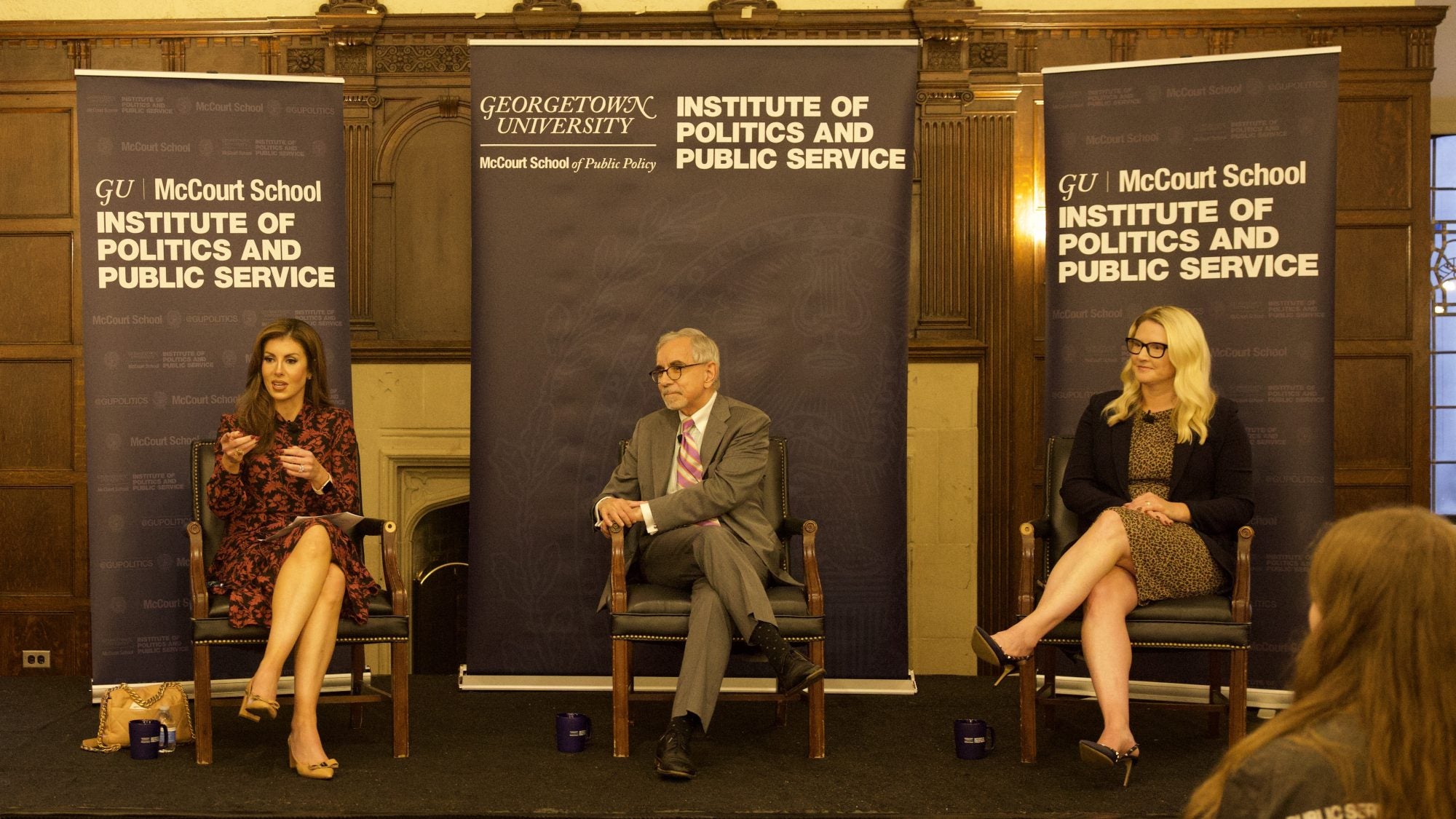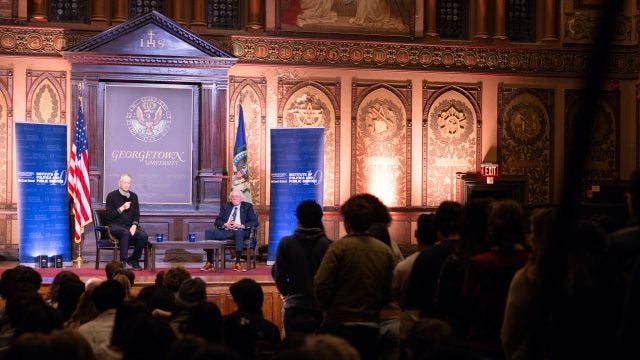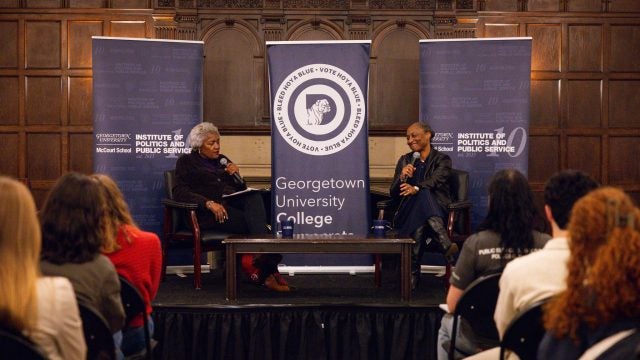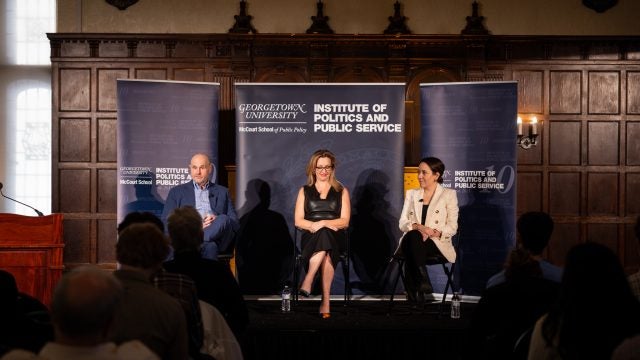On September 26, 2024, Georgetown University’s Institute of Politics and Public Service continued its Election 2024 programming with a conversation focusing on how the Harris and Trump campaigns communicate their foreign policy priorities to voters.
Students gathered in the Copley Formal Lounge to hear from a bipartisan panel featuring Marie Harf,, former Senior Advisor to Secretary of State John Kerry and Fall 2017 GU Politics Fellow, and Morgan Ortagus, former State Department Spokesperson in the Trump administration. The discussion was moderated by Tony Arend, Professor of Government and Foreign Service and Chair of the Department of Government at Georgetown University. The event was co-sponsored by the Walsh School of Foreign Service.
The conversation kicked off with both panelists outlining foreign policy records of the two candidates and discussing what future administrations under their leadership might look like. Ortagus highlighted that under the Trump administration, the National Security Strategy “shifted from Global War on Terror to Great Power Competition”, a change she noted was largely continued by Biden-Harris. She also emphasized the significance of the Abraham Accords. Looking ahead, Ortagus stressed that a second Trump term should not “pretend that the last four years didn’t happen” but should “craft politics toward the world that’s handed to you”.
Following up, Harf highlighted the successes of the Biden-Harris administration in re-engaging in diplomacy and rebuilding alliances, which became especially evident when Russia invaded Ukraine. She noted that the administration was able to “create a coalition that has helped Ukraine in its fight against Russia, defending democratic values and preserving the liberal world order”. Harf affirmed that their top priority has been “investing in relationships and alliances even when it’s not sexy and fun”. She went on to express that a new Harris administration would be a “Biden plus”, with a leadership style that is “values and principles based”. She suggested that Vice President Harris would approach issues like the Middle East, Russia, and China from this perspective, along with representing a shift toward a “new and different generation”of leadership.
The discussion prominently featured the ongoing conflict in the Middle East, with a particular emphasis on the Israel-Hamas war and the crisis in Gaza. A student, who is a first time voter, asked how the issue in Gaza might influence their voting decisions in the upcoming election and how the election could affect the course of the conflict.
Harf stressed that this topic is very personal, emotional, and moral for many people. She continued by saying, “it’s hard for me to imagine a president who would cut off all support to Israel to get them to stop doing what they’re doing, whether we think that’s a good policy or not”. She also critiqued the Abraham Accords, noting that many Palestinian activists feel the “normalization of relations between Arab states and Israel removed a key leverage point”, leaving Palestinians behind. Harf underscored that Vice President Harris deeply cares about ensuring Palestinians receive the dignity and self-determination they deserve.
Ortagus added that “the Palestinian people deserve better than the leadership they have received from Abbas and the Palestinian Authority”. She suggested that plans for peace do not necessarily need to be solutions provided by the United States or Europe but should involve facilitating efforts by countries within the region.
The evening ended on an uplifting note with both panelists emphasizing the crucial role of students and young people in shaping the future. Harf expressed optimism about the “record number of young people registered to vote for the first time,” viewing it as a hopeful sign for democracy. She remarked, “what we don’t want is to give autocrats what they want, which is convincing us that democracy doesn’t work”. Ortagus told the audience that, “all of you are the hope”. She encouraged students to maintain their ideals and friendships, advising them not to let disinformation from any side damage their relationships. The panelists’ shared message highlighted the power of the youth to strengthen democracy through active engagement and unity.
This article was written by Victoria Aarons, a second year graduate student in the McCourt School of Public Policy.
Watch the full recording below.



